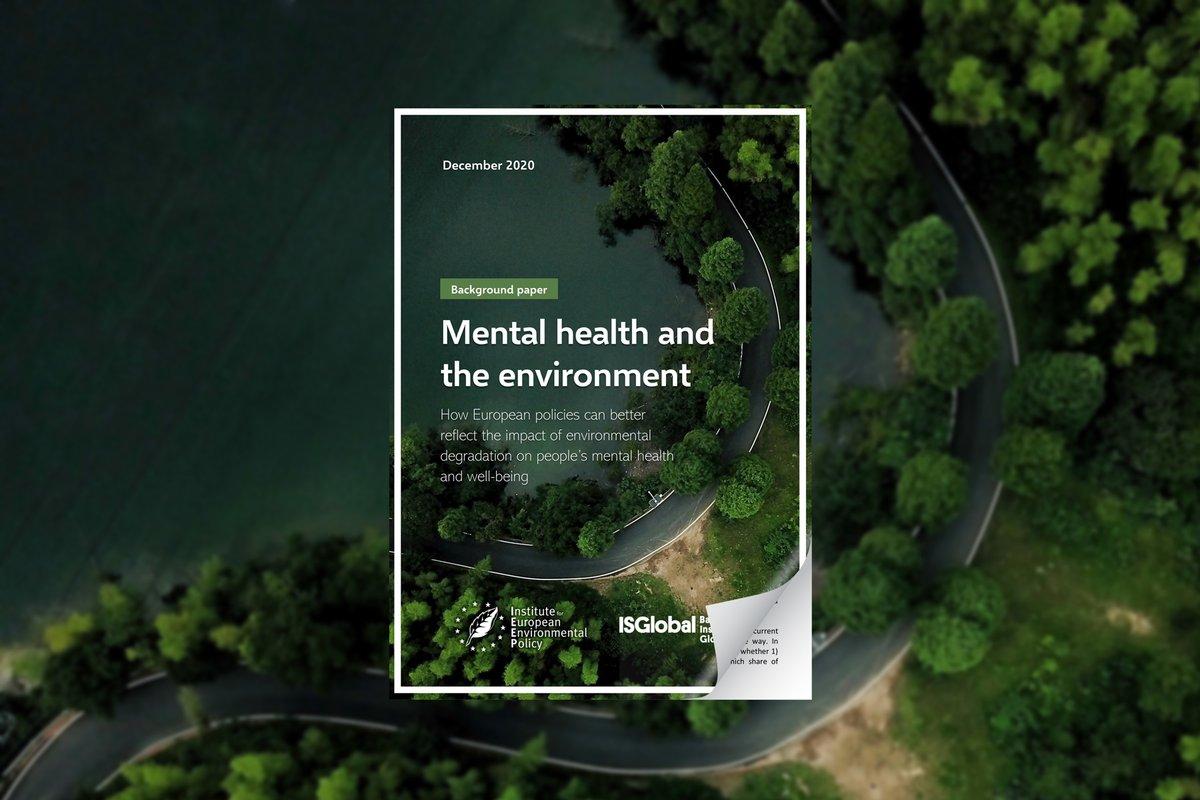AUTHORS: Tsvetelina Filipova – Lisa Kopsieker – Erik Gerritsen – Eloïse Bodin – Bartosz Brzeziński – Oriana Ramirez-Rubio (ISGlobal)
This background paper reviews available scientific evidence on the correlation between the environment and people’s mental health and well-being in Europe, and identifies solutions for policymakers.
In recent years, evidence on the interplay between mental health and the environment has grown significantly, and the COVID-19 crisis adds a more urgent need for policy and decision-makers to identify and implement win-win solutions to both challenges.
This paper investigates environmental degradation and pollution as a threat to mental health. It also looks into nature as an enabler of good mental health and the role of nature in the treatment of mental health conditions. Its structure logically flows from a review of the various environmental determinants of mental health towards the possible solutions and mitigating actions via nature, ecosystem services and improvement of the environment. Finally, the paper discusses how the interplay between the environment and mental health is incorporated into major policy documents and suggest ways for further integration.
This paper considers the environment as one of the key determinants of mental health outcomes. Among the dimensions explored, climate change as a global environmental threat creates psychological distress and anxiety about the future. Climate change furthermore has direct impacts on mental health (e.g., heat stress) and indirectly affects social support systems, cultural traditions, and environmental conditions. Alternatively, a wealth of evidence suggests a relationship between human exposure to a wide range of chemical substances and negative mental health outcomes, including depression, anxiety ASD, ADHD and other psychiatric and neurological conditions.
There is also strong evidence that noise pollution (particularly coming from traffic) is linked to mental health problems, including annoyance, poor sleep, cognitive impairment, and exacerbation of psychiatric problems. Noise is particularly relevant for children, as they are particularly vulnerable, including in settings such as schools. It is important to note the existing and potential synergies of different risk factors, which concurrently can affect mental health. A combination of different risk factors creates or has the potential to generate a much stronger, cumulative impact on mental health.
The reviewed studies found substantial evidence that supports an association between common types of nature experience and increased psychological well-being along with a reduction of risk factors and burden of some types of mental illness. Evidence also points to significant economic savings potential to public care budgets of better integrating mental health benefits into urban planning, especially when tailored to neighbourhoods with poor exposure and access to green spaces.
The health-social benefits of nature need to be more widely recognised and nature-based solutions that not only deliver on climate but also on biodiversity and health should be scaled up as cost-effective approaches to avoid health impacts and excessive societal and budgetary costs.

